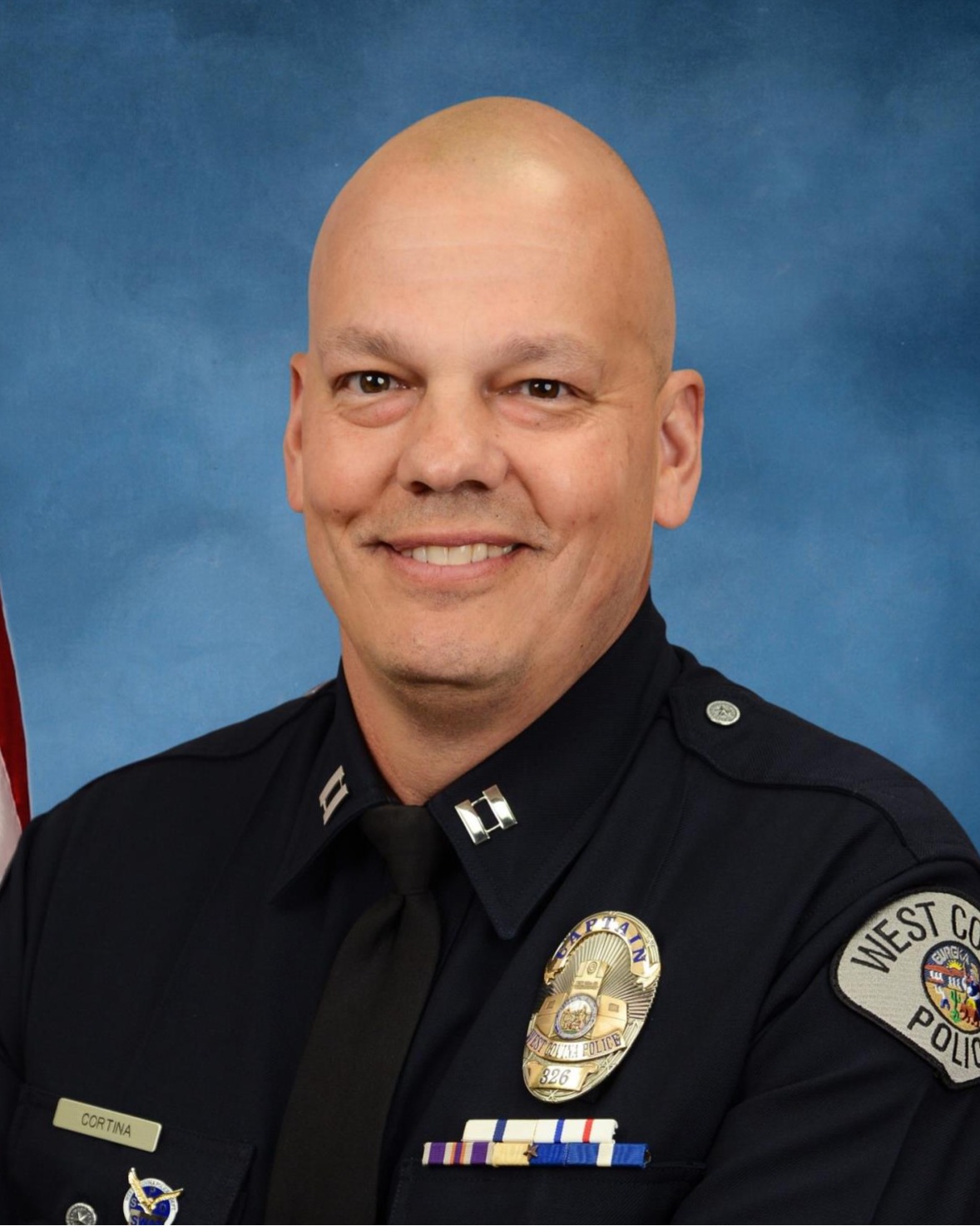Tony Cortina started his career as a police officer with the San Marino Police Department in 1997. In 1999, he lateraled to the West Covina Police Department. As an officer, he worked patrol, became a police K9 handler, and worked as a detective with the Department’s Special Enforcement Team (SET). Soon after, Tony was promoted to the rank of corporal and became a field training officer (FTO) and eventually was assigned as the Department’s training manager, responsible for department-wide training.
Tony was then promoted to the rank of sergeant. As a sergeant, Tony worked patrol and supervised the major narcotics unit, detective bureau, and the professional standards unit. Tony was also assigned to be the chief’s adjunct.
Upon being promoted to the rank of lieutenant, Tony served as a watch commander and was assigned a service area of the city to oversee and manage the department’s canine unit and jail operations. Tony was then promoted to the rank of captain in December of 2021 and was appointed Chief of Police in January 2025.
During his career, Tony served 19 years on SWAT (8 years as a team leader), was a defensive tactics instructor for 24 years, and has taught defensive tactics and use of force, not only within the department but also nationally and internationally. Tony also holds several black belt rankings in various martial arts and has been inducted into two martial arts Hall of Fame organizations. Tony was a recipient of the Department Bronze Star and other several meritorious citations.
Chief Tony Cortina has a bachelor’s degree in organizational leadership from Penn State University and has completed his master’s degree in law enforcement and public safety leadership from the University of San Diego. He is also the recipient of the FBI-LEEDA Trilogy Award, is a California Office of Emergency Services (OES) state-certified emergency management specialist, and a graduate of the POST Supervisory Leadership Institute.
What motivated you to be a LEPSL ambassador?
The program was very relevant and applicable to policing. It helped me tremendously with professional development, continual growth, networking, and with promotional opportunities. I have seen the program have similar results with others within my department.
Why did you choose the LEPSL program? What made LEPSL stand out in comparison to other schools/programs?
I found the curriculum to be relevant and the program was highly recognized by others.
What were your concerns about starting a graduate program?
My concerns were the cost and time commitment.
How did the LEPSL program help you achieve your career goals?
I have been able to remain current with policing concepts and science. It has also helped me to become a well-rounded leader, innovator, and leader within my department.
What advice would you give to someone to be a more effective leader?
A great leader must be a constant learner. This program has taught me the importance of staying relevant with policing science, legal updates, innovation, and leadership. These are all necessary components of success from the line-level officer to the Department Head.
What was your favorite LEPSL course?
The course on 21st Century Policing was amazing. It really is a playbook on how to lead a law enforcement agency. This course engrained these concepts into me and has guided me with how I’m leading my agency.
What were you balancing while participating in the LEPSL program?
During this program, I was a Police Lieutenant and eventually a Police Captain. I had the professional responsibilities that came with those assignments in addition to balancing time with my family. I still had ample personal time to allow me to have a work/family balance.
How did you stay motivated throughout the program in the face of competing priorities in your life?
I truly found each course relevant to my daily work activities and found comfort in learning things that I could implement immediately. The workload was also very manageable.
LEPSL Graduating Class:
2022
